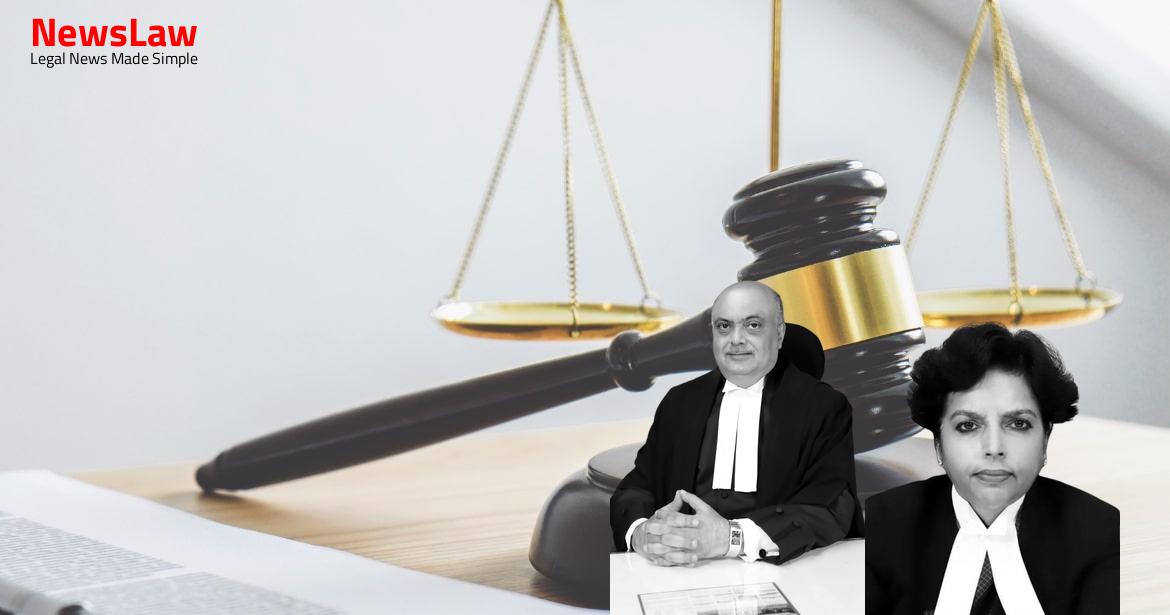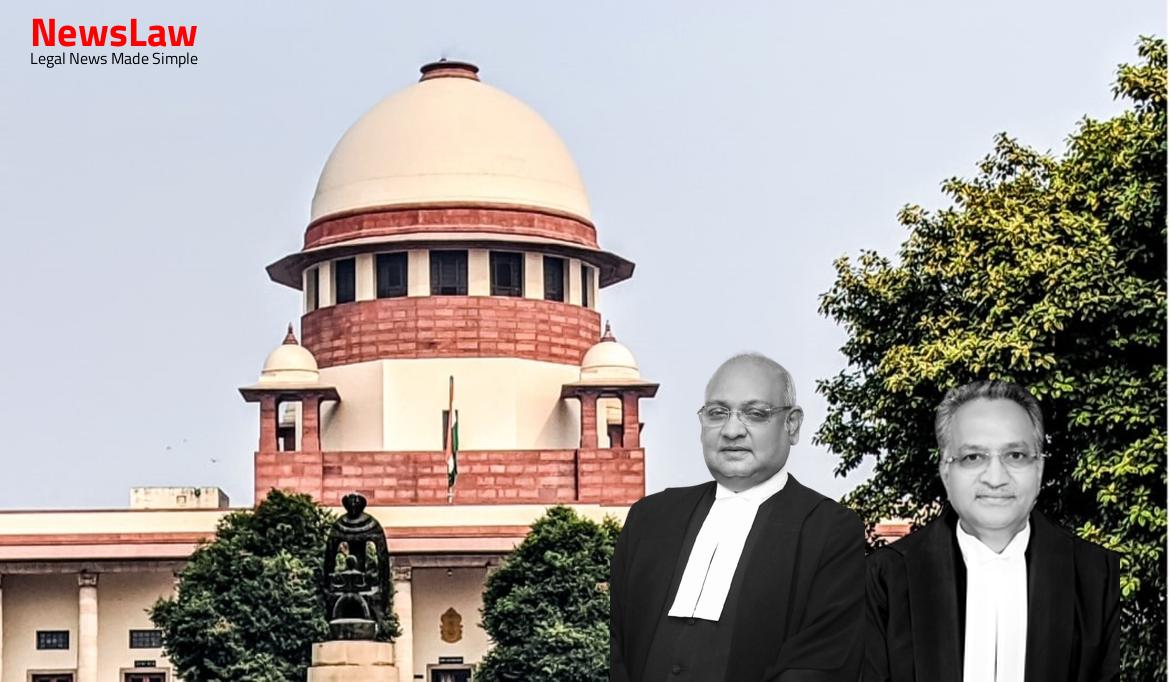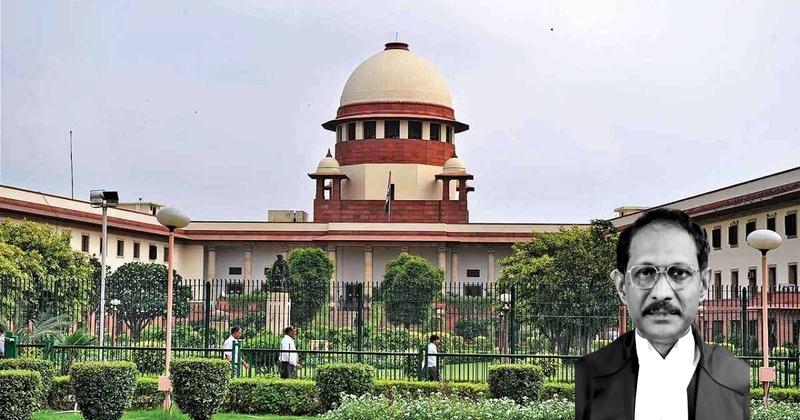The Supreme Court has delivered a significant judgment on the bail orders for respondents Waseem, Nazim, Aslam, and Abubakar. The case delves into the serious criminal charges faced by these individuals and the considerations for granting bail. Stay updated on the legal proceedings and the implications of this important ruling.
Facts
- Bail was granted to accused Waseem on grounds of parity with his father, Niyaz Ahmad, which was later set aside by the Court.
- An appeal by the appellant-complainant led to the restoration of the bail application of accused Waseem to be decided afresh by the High Court.
- The case involves multiple accused individuals (Nazim, Aslam, Abubakar) seeking bail on similar grounds under Section 439 Code of Criminal Procedure, 1973 for a case involving various offences.
- Different Benches of the High Court allowed the bail applications of Waseem, Nazim, Aslam, and Abubakar on separate dates.
- The appellant-complainant approached the Court aggrieved by the bail orders granted by the High Court on these individuals.
- The case pertains to an incident on 19 May, 2020, with ongoing investigation and court proceedings involving delays and attempts to transfer the trial.
- The conduct of the respondents in delaying the trial was criticized by the Additional Sessions Judge in Meerut.
- Co-accused Niyaz Ahmad filed a transfer petition for a change in the trial judge due to alleged bias.
- The post mortem reports of the deceased sons of the appellant showed fatal firearm injuries.
- Eyewitness testimonies implicated Waseem, Nazim, Aslam, and Abubakar in the incident.
- Multiple arrests were made, and illegal firearms were recovered from Aslam.
- Trial proceedings involved examination of witnesses and the statement of the informant.
- Previous court orders for bail were challenged and overturned based on findings.
- The case is pending trial before the Additional Sessions Judge in Meerut.
- Allegations of enmity and a targeted attack by the accused are central to the case.
Also Read: Time as Essence of Contract in Sale Agreement: Legal Analysis
Issue
- Single Judge disposed of the bail application in an unsatisfactory manner
- The issue is whether bail should be granted in a serious criminal offence matter
- The High Court’s jurisdiction under Section 439(1) of the Cr.P.C. is in question for granting regular bail
- Examining the justification of the High Court in granting bail to the respondents
Also Read: Retirement Age of PTI/Sports Officer in University
Arguments
- Accused Waseem did not misuse the liberty granted by the High Court
- Individual role of each accused not required to be considered at the bail stage
- High Court’s discretion on giving reasons for bail orders
- Opposition by Senior Advocate for accused-respondents Waseem, Nazim, Aslam, and counsel for Abubakar
- Delay in trial not attributable to respondents
- Factors considered by the High Court for granting bail to Waseem
- Antecedents of the respondents highlighted by State of Uttar Pradesh
- Criminal history of appellant-complainant and his sons detailed
- Refutation of involvement in multiple cases by the accused
- Appellant-complainant known criminal with several cases registered against him
- Accused Waseem was released on bail and abided by the conditions imposed.
- Eye-witnesses provided explicit details of the accused’s role and motive in the offense.
- Concerns raised about accused influencing the trial and threatening witnesses.
- Appellant and deceased family members had involvement in criminal cases.
- Argument made that bail should not be cancelled without supervening circumstances.
- Judicial Magistrate ordered further investigation despite a closure report by local police.
- Contention of previous enmity between parties and false inclusion of individuals in FIR.
- Dispute rooted in political rivalry post-election loss by appellant-complainant.
- Allegation of over-implication of accused due to double murder and enmity towards complainant’s family.
- Role of accused in offense reiterated by appellant and two independent eyewitnesses.
- Arguments against prosecution version highlighted by respondents’ counsel.
- Accusations of assault by appellant and 15 others leading to counter complaint by Waseem’s mother.
- Assurance given that respondents are village residents and will not abscond during trial.
Analysis
- The Court must consider the seriousness and gravity of the crime in question
- The High Court overlooked the period of custody of the accused for a grave offence.
- The High Court granted bail based on insufficient reasoning and questionable factors.
- The accused involved in previous criminal activities were granted bail in this case.
- The High Court ignored key eyewitness testimonies and the seriousness of the offence.
- The appellate Court found the bail orders to be unjustified and lacking reasonable grounds.
- The accused had spent less than three years in custody for a double murder charge.
- The police’s investigation was criticized for being one-sided.
- The delay tactics by the accused in the trial process were observed.
- The High Court granted bail without proper consideration of the gravity of the offence and relevant material.
- The principles guiding the discretion of granting bail were disregarded by the High Court.
- The power to grant bail under Section 439 Cr. P.C is of wide amplitude.
- The discretion of the High Court or a Sessions Court in granting bail is considerable but not unfettered.
- Considerations for cancelling bail include supervening circumstances or post-grant conduct of the accused.
- An order granting bail must reflect due application of judicial mind and well-established legal principles.
- Appellate Courts may set aside bail orders based on illegality, perversity, or irrelevant material.
- Considerations for setting aside bail orders include supervening circumstances, accused’s conduct on bail, attempts to delay trial, threats to witnesses, and tampering with evidence.
- The list of considerations provided is illustrative and not exhaustive.
- At the stage of granting bail, only a prima facie case needs to be examined, detailed reasons causing prejudice to the accused should be avoided in the bail order.
- The various factors examined collectively indicate that the respondents do not deserve the concession of bail.
- The observations made are limited to examining the infirmities in the impugned orders and do not indicate an opinion on the merits of the matter pending trial.
Decision
- All four impugned orders are quashed and set aside.
- Original Names are to surrender within two weeks from the date of this order.
- Respondents can apply for bail at a later stage if new circumstances emerge.
Case Title: AJWAR Vs. WASEEM (2024 INSC 438)
Case Number: Crl.A. No.-002639-002639 – 2024



